Website builders today let you do deep customization, embed analytics and integrate with a slew of key business applications from e-commerce to live chat to SEO. These functions are now the baseline, that choosing a platform is likely to include any, if not all, of these top website builder software:
- Wix.com
- Shopify
- Weebly
Wix has come a long way from its Flash-driven interface rollout back in 2006. It is today a model of a dynamic drag-and-drop HTML-5 development platform that anyone can use sans coding knowledge.
Shopify, meanwhile, is almost synonymous to e-commerce, arguably, the most popular shopping cart solution for small businesses.
On the other hand, Weebly, like Wix, mainstreamed widget-based and mobile-responsive website development.
They all do an excellent job, so, which website builder is the best? This article will help you choose the right fit by comparing the core features. We’ll start you out with a low down on each platform, then proceed with revealing their pros and cons.

Weebly vs. Shopify vs. Wix.com Comparison
Having an Appealing Website is Central to Customer Experience
Entrepreneurs strongly agree that an appealing and functional website is very efficient in brand promotion and in increasing trust. After all, it is one of the top digital marketing channels of businesses (see table provided). A survey of US small and medium businesses, company owners reveal that when it comes to technology spending, their top priority is enhancing customer experience and this, they say involves website upgrade (the others are integrating e-commerce capabilities or new digital engagement apps).
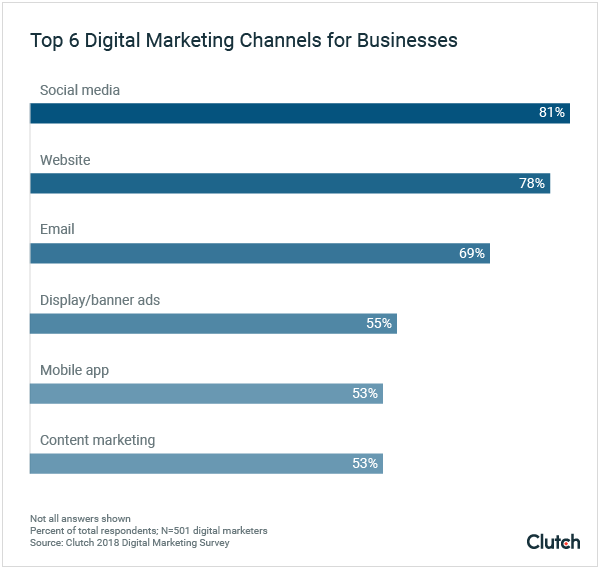
Source: Clutch 2018 Digital Marketing Survey
Website builder programs help small enterprises, freelancers and non-profit organizations—who are mostly budget-conscious or with minimal funds for technology spending—create and design their own websites without spending any money at all. But being free should not mean boring and ineffective in helping a business improve its activities, especially in boosting customer experience.
Let’s scrutinize some of the best online website builder software at present. In this Weebly vs Shopify vs Wix.com comparison, you’ll understand which website builder is the best.
1. Wix

Wix has one of the most intuitive design interfaces using widgets and drag-and-drop tools.
Wix is a powerful website builder yet very simple that even average, non-technical people can easily create amazing, professional-looking websites in a matter of minutes or so, without spending a dime. With Wix, the common issues of technical difficulty and the high cost of creating and maintaining websites are bypassed.
First-time users will definitely appreciate the freedom to create their own website for free, either by letting Wix Artificial Design Intelligence design a website for you or create a website as you wish using the Wix Editor. With a dynamic Wix Code, you can, later on, integrate additional functionalities. With Wix, you simply choose a design for your website, customize as you see fit, and then go online at an instant.
The vendor has an appealing free trial where you can tinker with the features at no cost. You can sign up for the Wix free trial here.
Wix is excellent for SMB owners, aspiring entrepreneurs, and freelancers who want to tap into the power of the internet to create and maintain a compelling online presence. Wix provides them with an easy-to-use, free, and powerful website builder and related tools that will cater to almost any preference or purpose.
Its professional website creation platform can be applied to all kinds of websites—practically any user need or purpose, for small, medium and large organizations. Its user-friendly drag-and-drop system with over 500 designer templates, handy authoring tools, and customization and integration for eCommerce, social media, and more than a handful of helpful uses make Wix the best choice.
While its free plan is already remarkable in itself, its premium offerings, which starts from around $5.00 (basic plan) to $30 (most premium plan) monthly rates, provide more advanced features.
2. Shopify
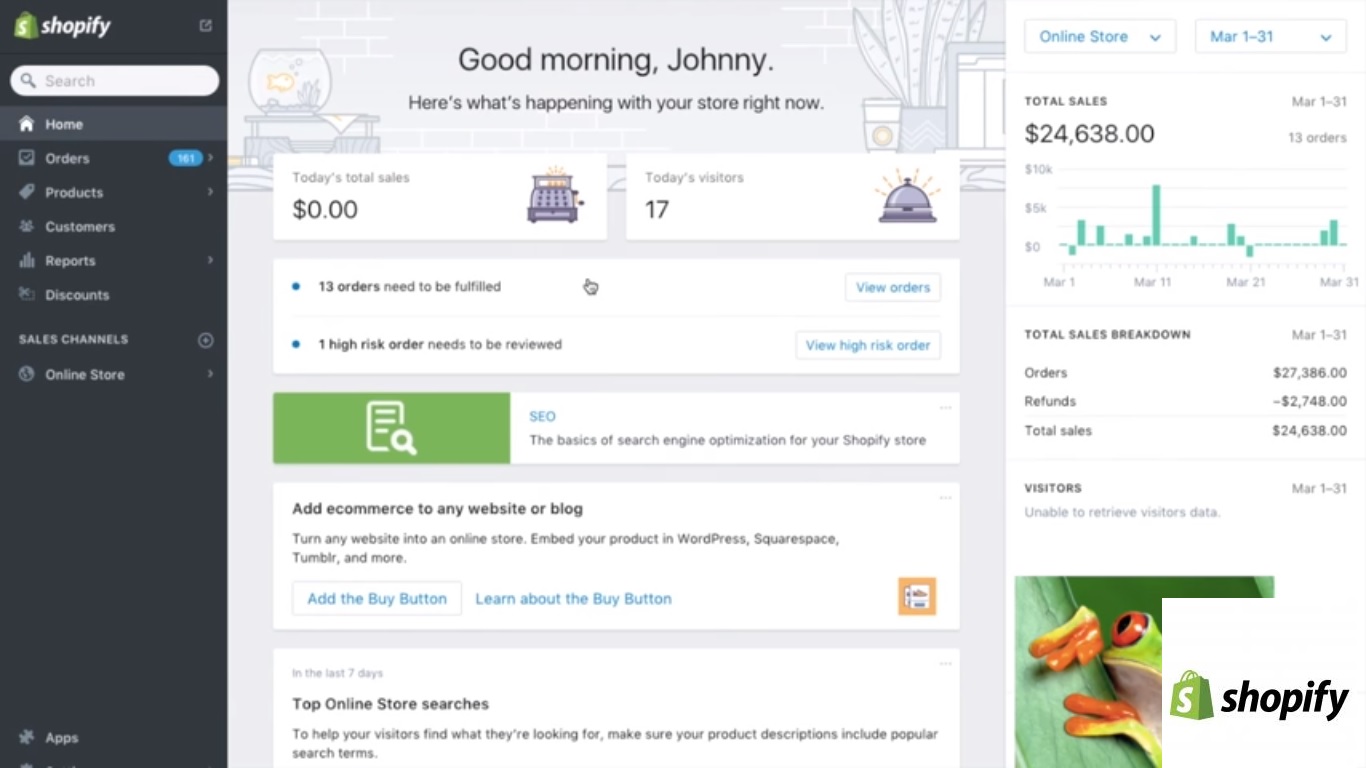
Designed primarily for e-commerce, Shopify focuses on online shopping KPIs.
Another widely-used website builder is Shopify. It handles many important business functions, starting from marketing to potential customers to closing sales and product delivery. With Shopify, business owners can focus on more important aspects of running an enterprise. Indeed, it delivers on its promise to let entrepreneurs concentrate on how to grow their business and just let Shopify handle the rest.
With so many competing apps out there, Shopify separates itself by aspiring to be the best in eCommerce solutions. It offers e-stores, online shopping, and other functions that online retailers require in their business. Shopify is designed to target SMB owners and start-up freelance online sellers.
If you want to investigate the features closely you can easily do so when you sign up for a Shopify free trial here.
It also features an intelligent drag-and-drop platform for building websites and does not require any prior design skills to create your own site. When you sign up with Shopify, you gain quick access to numerous elegant themes. Its intuitive system provides you total control on how you want your site to look like, thus allowing you to make your website a direct extension of you and your enterprise.
Shopify plans start from $9 to $299 a month.
3. Weebly
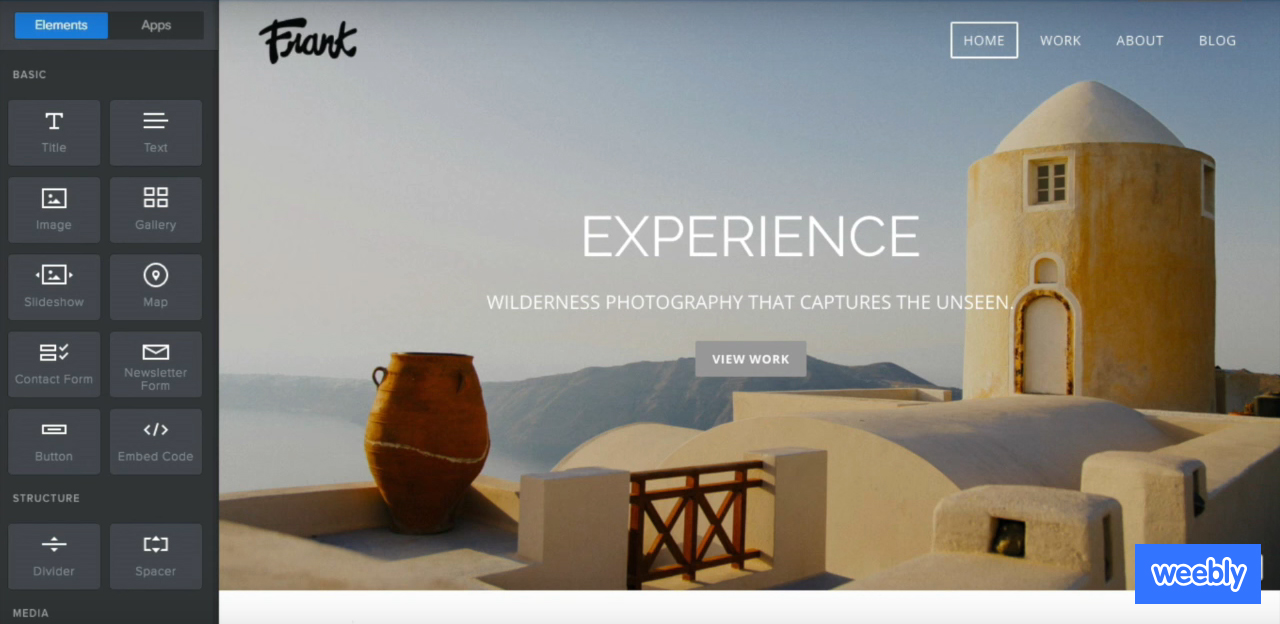
Weebly is regarded for its “clean” UI.
Weebly is another top website builder whose ease-of-use had made it among the most popular today. By using just one platform, users can build different kinds of websites, online stores, and blogs. It also has a drag-and-drop mechanism that empowers newbies and small enterprises to create their own website easily, also free of charge in its basic plan.
It also offers a wide range of impressive themes for your websites, all of which can be modified to cater to individual preferences. Weebly also has SEO (search engine optimization) platform to help you achieve high visibility in online searches. Weebly also has some integration features, which allows the use of external apps for its websites.
Similar to Wix, Weebly is among the first choice for those aiming to create their first website for both personal and business use, due to its simplicity and a free basic plan.
Business owners or individuals seeking more sophisticated features can readily migrate to Weebly’s premium plans, including the option to buy their own domain from Weebly. It offers a robust cloud enterprise plan starting at $25 per month.
Comparison of Key Features
In our quest to know which website builder is the best, let’s proceed with comparing their core features.
Ease of Use
The true measure of a website builder is its ability to allow an average individual to make and launch his or her own website easily and quickly. If it can do so without putting non-tech users without much difficulty and confusion, allowing a smooth, straightforward use of its features to create a website, then it’s the website builder to choose.
With all its innovative features and stunning designs seamlessly integrated to deliver exceptional ease, convenience, and satisfaction in website creation, especially for novice users, Wix truly delivers in this crucial aspect. What’s more, after building your website, Wix is also designed to help you efficiently manage it as exactly how you want it, further enhancing its usage simplicity.
Weebly also offers the same straightforward features. However, compared to Wix, it has fewer designs to choose from (but the existing ones are quite awesome). Shopify, meanwhile, is notably easy and quick in building online stores for small and large-scale sellers. It actually hosts online stores, giving considerable flexibility to allow business owners to focus more on more business-critical concerns.
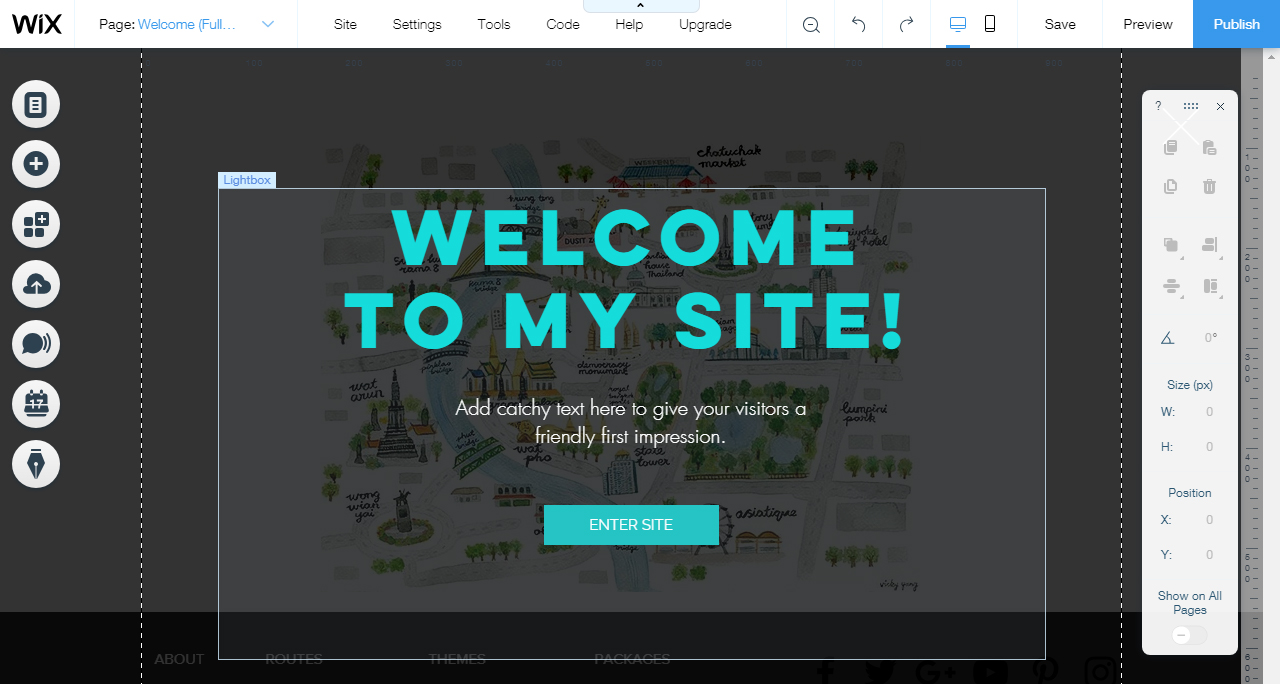
Creating a squeeze page, welcome page or popups is easy with Wix.
Design Templates
A website builder’s remarkable strength in ease-of-use will become insignificant if its templates are boring and poor in quality. Website templates should be uncluttered, can be customized per user preference, stylish, and compatible with others platforms, including shopping cart, inventory management, and CRM solutions.
Shopify offers more than 100 professional-looking themes, ensuring the creation of elegant websites for your online stores. It is also compatible with mobile e-commerce and has ready-made email templates for your communication needs.
The same goes for Weebly, where users have over a hundred beautiful themes to choose from. Its website designs are noticeably clean, especially the placement of user options. Wix users have access to 500+ stunning themes and a host of robust interactive features and templates to cater even to the most meticulous preferences.

Weebly, like Wrike, offers function-specific websites, from an online store to portfolio to blog.
Customization
Customization is key to designing the right website for your business. A website builder should allow designing with ease (with drag-and-drop tools) and offer a wide array of options, including changes in font type and size, background, and color, as well as flexibility to modify layout arrangements, among others.
In this aspect, Wix stands out. Its designs and templates can be customized for a particular brand and personal preferences, aside from being flexible and scalable. You can also opt to use either the Wix Editor or Wix Artificial Design Intelligence to design your website based on your specific requirements.
On the other hand, Weebly offers clean yet powerful customization features, with easy to use options designed in a way that newbie users can readily navigate. By simply clicking on the website elements, various options for customizing page components and settings, including forms, videos, text, and images.
When it comes to creating online stores according to owner preference, Shopify rules. The more you advance in its subscription plans, the more sophisticated and useful features you can use.
Integration
Another critical aspect is the website builder’s capability to integrate the company website with key enterprise processes such as e-commerce, marketing, help desk, customer relations, and data analytics.
Shopify is an excellent choice if you want to maintain mission control and performance management under one roof. You can conveniently integrate new sales routes with just a few clicks, complete orders instantly, incorporate various marketing schemes, and other business-critical processes, especially as you gradually expand your market reach.
Weebly also offers a wide range of integration with third party providers and other business solutions using a single platform. You can use Weebly for creating sites from the simplest landing page or a blog, up to a more complicated business website or an online retail store.
On the other hand, Wix works seamlessly with a number of third-party solutions, including sales apps and marketing solutions. You can also use it combination with CRM and social media apps to better engage customers.

Wix can integrate with myriad payment gateways, social media and a range of widgets.
eCommerce solutions
As marketing and selling increasingly become more online than traditional, any business seeking to create or upgrade their websites must select website builders that offer efficient eCommerce solutions. Vendor selection should be based on your particular needs. Small retailers can select website builders offering designs with either a simple built-in online store or provisions for third-party integration. For larger businesses, there are dedicated eCommerce builders that provide a fully-functioning online store, with sophisticated tools and applications.
Shopify is the name to beat when it comes to setting up and maintaining e-commerce capabilities, including a high volume of online store support features such as payment facilities, unlimited number of products and file storage, fraud analysis, and 24/7 support. It even has some support offline retail functions.
Wix’s ecommerce platform is also a sound choice for online retailers wanting to create an engaging online store for their product and service offerings. This Wix platform offers a robust electronic commercial transactions, with various choices for personalizing product catalogs and checkout pages, including the critical shopping cart function, all for enhancing customer experience. It also provides tax management, inventory and shipping handling, as well as various payment gateways.
Weebly also offers ecommerce store functions, including the design and automation of business forms, marketing management, etc. Compared to the two, its store management function is relatively tight, with additional features like tax management, as well as order and inventory control.

If your website need is mainly ecommerce, Shopify is a good foundation.
Domain and Hosting
Website builders typically provide temporary subdomains when a website is created. Users can choose to purchase their own domain to improve in search ranking. Some hosts their own domains or subdomains, while others do not but suggest third party providers. The same applies to email hosting. Vendors vary in terms of different aspects such as pricing, the extent of hosting services, bandwidth, etc.
Wix provides unlimited free hosting (but with ads), while its premium plan users can subscribe to domain names and email accounts, for the first year of subscription. With its high integration quality, subscribers have the option of using a third party email host or have email accounts bundled together with a domain name purchase.
Shopify is a reliable domain host as subscribers can have their own domain names when they purchase a plan, which also includes email hosting and professional email templates. Weebly also offers the same subdomain options like Wix for its free plan, while paying customers can choose to buy their own domains from Weebly.

Weebly gives you three ways to put up your URL.
Blogging and Social Media
If you want to become one of the online influencers in your niche, you need a website builder with facilities for social media and blogs.
True to its ease-of-use trait, Wix offers an easy-to-add blog feature in its websites, which can also be readily personalized with its hundreds of designer-made templates and themes.
Likewise, both Weebly and Shopify have blogging and social media features, with the former being among the top choices among bloggers worldwide, while the latter offers a complete blogging platform included in its plans.
SEO and Analytics
Website builders must not only be easy to use and have beautiful themes. They must also have online search support and data analytics features to help websites achieve high ranking in online search and facilitate management and analysis of website data and information.
Wix has a powerful SEO widget that can be bought from its booming apps market. It also uses Google Analytics, the industry leading standard in website and mobile intelligence.
Weebly’s SEO functionality is thoroughly incorporated into the Web that enables it to easily obtain organic traffic from most search engines. The same is true with Shopify, as it has efficient SEO support and analytics features.

The Wix SEO wizard guides you through setting up your website’s SERP requirements.
Conclusion
So let’s go back to our question, which website builder is the best? In this Weebly vs Shopify vs Wix.com comparison, we’ve discussed these three top website builder’s essential features, their shared and defining strengths, and how they thrive against each other’s offerings and overall efficiency.
If you go by customization, design, the number of widgets, and functionality, Wix is the better platform. It also scales more easily, providing you with ecommerce, blog platform and a slew of apps and images at your disposal across price points. However, you should still try each solution before subscribing to a plan, the better to have context. You can sign up for a Wix free trial here.
In general, small businesses involved in online retail would typically choose Shopify, while freelancers who blog a lot would usually go with Weebly. Those are safe expectations. But for those who want the best of both worlds and much, much more, selecting Wix could be one of the best decisions you’ll ever make.









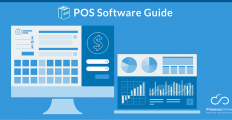



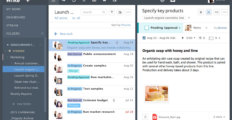












Leave a comment!